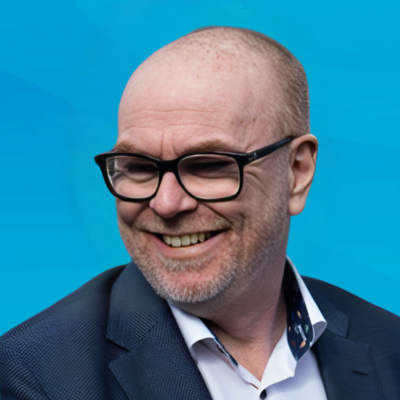Why do some recruitment founders scale to seven figures while others stay stuck at £300K despite working just as hard? My guest, Ollie Scott, discovered the answer. Growth doesn’t come from hustle. It comes from strategic bets.
Ollie is the founder of Unknown, a talent growth consultancy that has worked with more than 500 creative brands including Nike, Apple, and Disney. He launched the business in 2018 with £13,000 on a credit card and one mission: build the opposite of every recruitment company he’d ever seen.
In this episode, you’ll hear how Ollie turned rebellion into revenue, why scaling from eight to eighteen people collapsed profit margins from 45% to 8%, and why recruiters are sitting on six-figure M&A opportunities most don’t even know exist.
Episode Outline and Highlights
- [4:05] From selling suits after leaving school to recruitment at a James Caan company
- [10:23] Why Ollie started Unknown with £13,000 on a credit card
- [15:36] The naming strategy that future-proofed the business
- [18:26] Writing a breakup letter from clients to recruitment companies
- [21:44] Why rebellion works for startups but can’t scale
- [31:25] The shift from recruitment company to talent growth consultancy
- [33:16] The three-part operating model most agencies miss
- [36:36] Building nine products for three specific ICPs
- [44:03] The messy middle: scaling from 8 to 18 people destroyed profit margins
- [48:34] Why profit isn’t the devil – it’s the safety net that enables innovation
- [51:53] Unknown’s three strategic bets: brand, recurring revenue, and M&A
- [53:20] How to generate recurring revenue through high-quality freelance talent pools
- [58:25] Why recruiters have more M&A intelligence than M&A firms
- [1:00:42] How to price buy-side advisory at six figures
Different Always Beats Better
Ollie learned early that trying to be the “best” recruitment company is a losing game.
“If your proposition ends with a superlative – fastest, truest, hardest working – you’re in trouble. Someone will always do it cheaper or quicker.”
He didn’t want to compete on speed or volume. He wanted Unknown to be unrecognizable.
So he asked clients and candidates a simple question: If there was one more recruitment company in the world – which we don’t need – what should it look like?
The answers were consistent. Recruitment in the creative industry felt transactional, shallow, and forgettable. No insight. No point of view. No conviction.
Ollie turned that frustration into a breakup letter from the creative industry to recruitment companies. It captured everything clients disliked: lack of understanding, cookie-cutter processes, and a sense that recruiters cared more about fees than people.
That letter became Unknown’s foundation. It gave the early team a belief system – something to stand for, not just sell. Clients could feel the difference.
But Ollie soon learned a crucial lesson: You can’t scale rebellion.
Rebellion gets you noticed. Strategy helps you grow.
The Messy Middle Nearly Broke the Business
At eight people, Unknown was flying.
“We were doing half a million profit. I’d never felt wealthier. That was the perfect size.”
But in 2021, as demand exploded, Ollie decided to scale. He scaled fast – without the systems the business needed.
He hired junior and mid-level recruiters assuming they’d learn through osmosis. They didn’t.
“I had great billers – 400K, 500K a year – suddenly billing 200K. They were earning less, frustrated, and trying to train the new team. They’d been scoring goals in the Champions League every day. Now I’m asking them to stop and run the academy.”
Unknown grew from eight to eighteen people. Profit margins collapsed from 45% to 8%.
A consultant asked him bluntly: “Are you running a charity or building a business?”
Then another consultant reframed profit.
“Profit isn’t greed. Profit is padding. It’s psychological safety. You cannot innovate if you’re living hand-to-mouth.”
That landed. If failure isn’t an option, innovation never happens. No experiments. No new bets.
The lesson was clear: You cannot scale a recruitment business on belief alone. You need an operating model that supports growth.
How Strategic Bets Unlocked Recurring Revenue and M&A Fees
Ollie hired a consultant who explained that an operating model is not just delivery. It’s a triangle with three parts:
Creating value – your proposition and point of view
Delivering value – how you execute reliably
Capturing value – your pricing and monetization
Unknown had spent years perfecting the top of the triangle – creating value – but hadn’t systemized the bottom two.
That’s when they got serious about productization.
They identified three ICPs – creative agencies doing £5M to £120M, North American agencies with high cost bases, and clients looking to buy or sell agencies.
Then they built nine products for those ICPs. Real products. Defined outcomes. Clear pricing.
This led to three strategic bets.
1. Brand
“The brand has to be so good that the ‘grow’ button on our website gets pressed every hour.”
Ollie isn’t talking about visuals. He means perception. Distinction. Identity.
“Brand is the only thing that will separate you as AI rises and everyone sells the same capabilities.”
2. Recurring Revenue
Permanent search was too unpredictable.
“You’ve got a 50K deal… and then you don’t because someone’s auntie moved to Australia.”
Unknown built recurring revenue through curated freelance talent pools – high quality, low cost, shared across multiple clients with predictable monthly fees.
“If we’re building a pool and it works for five clients, that’s one workstream paid for five times.”
With half the global workforce expected to be freelance by 2030, agencies ignoring this trend will fall behind.
3. M&A Advisory
This is the opportunity most recruiters don’t see.
“There’s £3 trillion of private equity money that needs to be deployed. M&A is going to be huge. And recruiters are harvesting so much information.”
Recruiters speak with hundreds of leaders each month. They hold intelligence M&A firms can’t access.
Unknown now offers buy-side advisory with:
- Market maps
- Introductions
- Deep insight on leadership, culture, and reputation
Pricing starts at £25K upfront plus £75K on completion. In the US, that’s considered cheap.
“You can make between £20K and £500K off referring a business to an M&A firm. M&A firms don’t get that many sell-side opportunities. Recruitment companies come across them all the time.”
The insight: Recruiters aren’t vendors. They’re peers to the industry. They just haven’t been monetizing the value they already hold.











